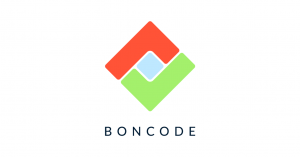When business leaders need better insights into their software portfolio, they call on BonCode for independent source code analysis. For that reason, our tool-based consultancy is usually implemented as part of a top-down approach to managing software quality.
It probably comes as no surprise that software monitoring is not always met with open arms by software engineers, software architects, and product managers – roles where day-to-day work is often autonomous, remote, and to a certain extent, hidden.
But software monitoring is not about micromanaging individual developers or remote development teams – it’s about facilitating meaningful conversations around custom-coded systems to maximize their business value.
And that’s a two-way street. Here’s why.
It’s all about software quality
When you look at it from a developer’s perspective, it’s clear why software monitoring might be misconstrued as a tool for micromanagement. After all, it surfaces multiple insights into source code, and adds a layer of traceability and accountability to custom software.
But independent source code analysis isn’t about catching out developers – it’s about generating insights into technical debt, and starting new and business-critical conversations around software quality. After all, for any organization that relies on custom-coded software, technical debt is now a boardroom issue.
Technical teams know technical debt is there because coding is always a delicate balancing act between speed and quality. On the other hand, non-technical leaders won’t necessarily understand it – and its potential impact on business-critical systems – in the same way. They need to be shown software quality in a way that makes sense to them and supports them in key decision-making.
It helps create a culture of quality
Although management might bring in software monitoring as part of a risk mitigation strategy, once implemented, technical teams start to realize its potential value to their work. The truth is, software monitoring (like software assessment) has a universal purpose, and that’s to improve the quality of custom software.
It’s something we see time and time again. Once our consultancy-based system for monitoring software quality is up and running, technical teams view it in a new light. In fact, most developers seem to reach the same conclusion: software monitoring is a handy tool for explaining technical challenges in a way that makes sense to non-technical decision-makers.
Sometimes, software monitoring even helps create a cultural shift within organizations. We’ve seen technical teams use it to leverage more time and resources to refactor code before technical debt has a chance to become a major problem. For example, in every fourth or fifth sprint, refactoring tasks are given priority over new functionality or features.
It’s in this situation that the data and insights about software quality help validate the business need to clean up code. Software monitoring enables technical teams to communicate the business value of refactoring to management.
It’s a way to validate refactoring efforts
Knowing that a software portfolio is carrying technical debt is one thing. Understanding where that debt is coming from and prioritizing what to ‘pay off’ first is the real challenge.
BonCode’s powerful dash-boarding, and quality scoring systems enable non-technical leaders to see the impact of refactoring by software engineers.
For technical teams looking to secure more time and budget to refactor and improve software quality, data collected through software monitoring can be a valuable asset. It’s a way to validate clean-up efforts, helping to make the case for refactoring alongside the development of new features.
A great example of this is when companies migrate to the Cloud and refactor at the same time, as we explored in our blog on why refactoring systems while moving to the Cloud is a winning approach. It can also be used to track and measure the impact of refactoring on software quality and therefore service delivery, business continuity, and data security.
Software monitoring through BonCode’s tool-based consultancy enables you to maximize the business value, security, and lifetime of your custom-built, business-critical software.





